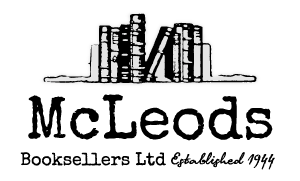|
|
Charlie Wilson's War
Stock informationGeneral Fields
Special Fields
DescriptionIt's common knowledge that the U.S. armed the Afghans in their fight against the Soviet Union, but until now, the fact that this was possibly the biggest, meanest covert operation in history has been absent from press reports. In one of the most detailed descriptions of a CIA operation every written, the bizarre twists and turns of the full story are told in CHARLIE WILSON'S WAR. Veteran 60 Minutes producer George Crile explains how one Congressman was able to provide the CIA with hundreds of millions of dollars to fund the Afghan program, dwarfing the price tag for arming the Nicaraguan Contras that occurred at virtually the same time. "The scope and nature of this campaign has still not registered in the consciousness of most Americans," Crile writes in the book's Epilogue. "Nor is it understood that such secret undertakings inevitably have unforeseen and unintended consequences which, in this case, remain largely ignored." When Crile produced his first story about Texas Congressman Charlie Wilson for 60 Minutes in 1989, he too underestimated the vastness of the program and its consequences. It was a later trip to the Arab world with Wilson, the Wilson's "princely" reception, and the events of 9/11 that opened his eyes to the far bigger picture of CHARLIE WILSON'S WAR. Among the book's more startling revelations: - By the latter years of the 1980s the CIA was not just providing arms to a half million Afghans, it had taken 150,000 of them and transformed them into what it called a force of "techno holy warriors." "From today's perspective," Crile observes, "that may seem more than a bit ill advised-particularly when you factor in the specialized training in urban warfare that the Agency sponsored to include the use of pipe bombs, bicycle bombs, car bombs, camel bombs, along with a host of other tactics to wreak havoc with the army of a modern superpower." - The United States continued to fund the Afghan rebels long after the withdrawal of the Soviet Union. Incredibly, the subsidies continued despite the fact that one of the most important mujahid leaders sided with Saddam Hussein in the Gulf War. - In addition to $200 million in aid from the U.S. and $200 million from Saudi Arabia, in 1991 and 1992 the rebels received Iraqi weapons captured by U.S. forces during the Gulf War. At the same time, the Berlin Wall came down and the Soviet Union ceased to exist. The Cold War was effectively over but what began as a war against Communism was continuing to be funded. "The question that has puzzled so many Americans: 'Why do they hate us?' is not so difficult to understand if you put yourself into the shoes of the Afghan veterans in the aftermath of the Soviet departure," Crile says. To them, the real superpower in their struggle was Allah. The United States eventually cut off its support in the 1990s. In the Afghan's minds, Allah did not. CHARLIE WILSON'S WAR is nothing short of a critical missing chapter in our political consciousness. Without a clear understanding of its impact, it may be impossible to comprehend the two world changing events that shook the United States on either side of the millennium: the sudden and mysterious collapse of the Soviet Union and the equally inexplicable appearance of a new global foe in the form of militant Islam. At its core, it tells of an unorthodox alliance-of a scandal-prone Texas Congressman named Charlie Wilson and an out-of-favor CIA operative named Gust Avrakotos-that armed and sustained the Afghan jihad and turned Afghanistan into the Soviet Union's Vietnam. "The origins of this book go back to a time when the Afghans were viewed by most everyone in the U.S. government as freedom fighters and allies against a common foe," Crile writes in the Epilogue. In 1988, Crile produced a 60 Minutes profile of Wilson that he now realizes barely scratched the surface of this fascinating story. Later, while, accompanying Wilson on a trip to Kuwait, Iraq, Saudi Arabia |

